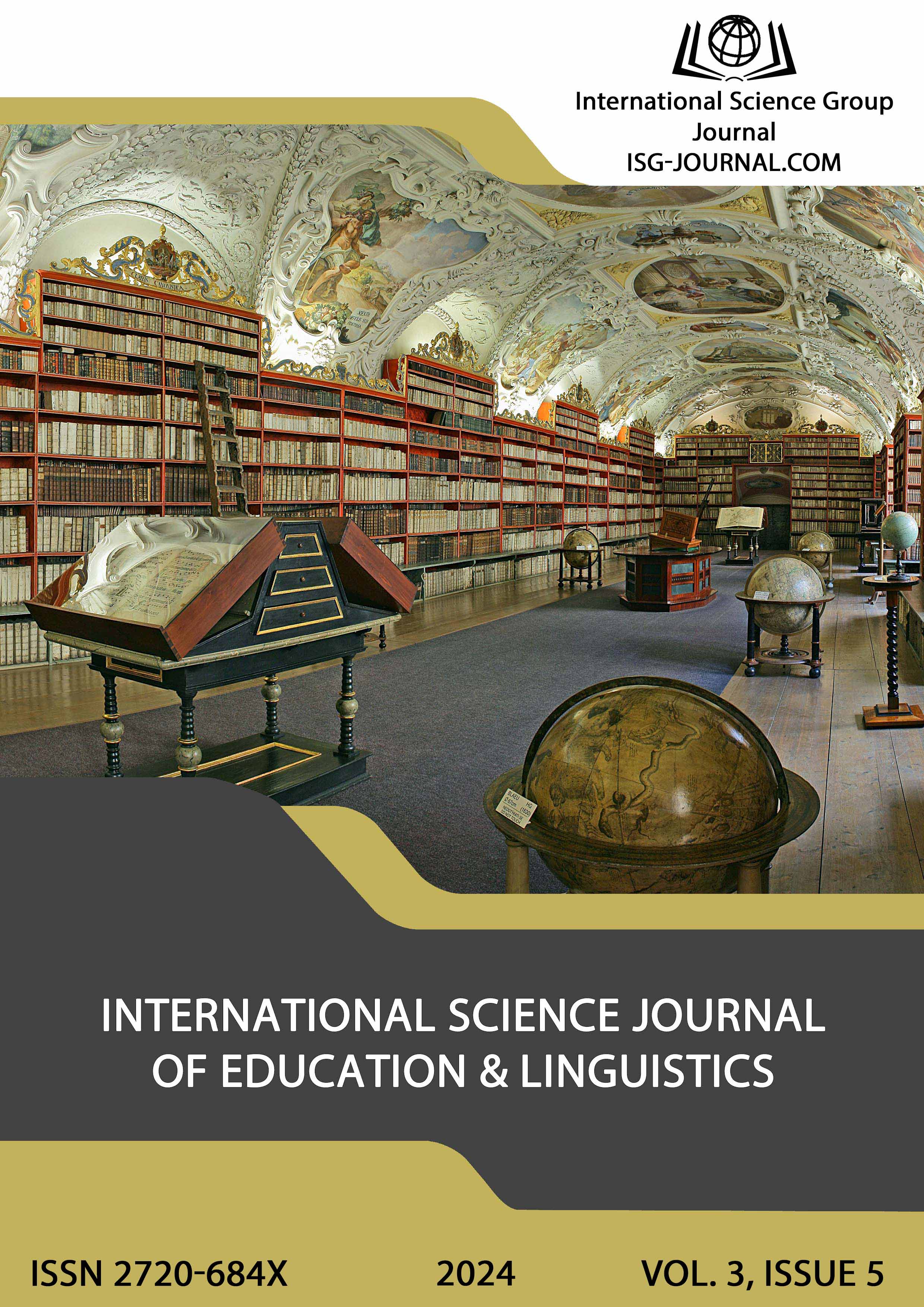Modern methods and imperatives of education in post-covid and war times: challenges, norms and conditions of an effective educational process
DOI:
https://doi.org/10.46299/j.isjel.20240305.02Keywords:
technology, modern methods of education, digitalization, education in Ukraine, method of education, the mechanism of implementation of the educational process, martial lawAbstract
The article describes the educational process and the current mechanism for realizing the right to education in the state, which operates on the basis of the Constitution and legislation of sovereign Ukraine, in accordance with the Resolution of the Cabinet of Ministers of Ukraine dated 07/28/2023 No. 782 "The beginning of the academic year during martial law in Ukraine", in educational institutions. The issue of the security situation in each separate administrative-territorial unit of the educational process was raised. The peculiarities of the educational process under martial law and control measures are well known, however, the regulatory component and the "letter of the law" is only one of the necessary methods of implementing education. Another, no less important aspect here is the coordination of methods and the very form of implementation of education, which has been significantly changed since the period of the Covid epidemic - 2019 and now, so we will talk about digital mechanisms of contact and interaction, digitalization and forms of education in 2024, during martial law. The purpose of writing the article is to highlight the problems and evaluate the changes in the educational process at all levels, to analyze the methods of mutual exchange that began during the epidemic and are successfully functioning today, during the shortage of electricity, the necessary conditions for staying in the bomb shelter, anxiety, etc.References
Інтерв’ю речниці ОСН Маргарити Малишевої, Інтернет-ресурс. https://osn.com.ua/news/society/novi-realii-navchalnogo-roku-osoblivosti-osvitnogo-protsesu-v-umovakh-vo-nnogo-stanu.htm
Популяризаційний допис O'Malley B. Education under attack, 2007: a global study on targeted political and military violence against education staff, students, teachers, union and government officials, and institutions. UNESCO, 2007. 67. https://unesdoc.unesco.org/ark:/48223/pf0000186303
Допис із електронного журналу, інтерв’юер Олеся Балаян. https://life.pravda.com.ua/columns/2023/10/23/257148/
Вишнівський В.В., Гніденко М.П., Гайдур Г.І., Ільїн О.О. Організація дистанційного навчання. Створення електронних навчальних курсів та електронних тестів: навчальний посібник. Київ: ДУТ, 2014. 140 с.
Стаття з Віснику Національного університету «Чернігівський колегіум» імені Т. Г. Шевченка https://visnyk.chnpu.edu.ua/index.php/visnyk/article/view/615
Мартиненко С. Особливості педагогічної взаємодії суб’єктів навчально-виховного процесу, наукової та соціально-гуманітарної діяльності / С.Мартиненко // Вища школа. – 2009. – № 11. – С. 32–39.
Офіційний портал Верховної Ради України: допис Про забезпечення функціонування української мови як державної: закон України. https://zakon.rada.gov.ua/laws/show/2704-19#Text
Янченко Т.В. Педогогія в Україні та зарубіжжі: теорія та практика: монографія / науковий редактор О.В. Сухомлинська. Чернігів: Десна Поліграф, 2016. 448 с.
Мартиненко С. Особливості педагогічної взаємодії суб’єктів навчально-виховного процесу, наукової та соціально-гуманітарної діяльності / С.Мартиненко // Вища школа. – 2009. – № 11. – С. 32–39.
Цибрій, С. Гендерні аспекти фахової діяльності учителів : заняття з елементами тренінгу / С. Цибрій // Соціальний педагог : всеукраїнська газета для фахівців. – 2012. – № 10(жовтень). – С. 54–57.
Downloads
Published
How to Cite
Issue
Section
License
Copyright (c) 2024 Dmytro Kniaziev,

This work is licensed under a Creative Commons Attribution 4.0 International License.





